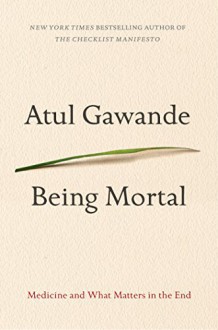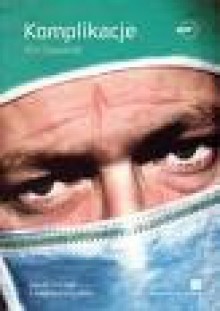
"...our decision making in medicine has failed so spectacularly that we have reached the point of actively inflicting harm on patients rather than confronting the subject of mortality. ...you live longer only when you stop trying to live longer." - pg 178
I wanted to start with that quote from today's book because it struck me as being so shocking in its simplicity and yet it completely blindsided me with its poignancy. Being Mortal: Medicine and What Matters in the End by Atul Gawande is at heart a discussion of the ups and downs of treating the elderly through a variety of means whether that means aggressive medicine, nursing homes, assisted living, or hospice. It's obvious that the author has a great admiration for palliative care and a belief that all doctors/clinicians should be trained and proactive to deliver the best care for their patients. In essence, asking practical questions about what trade-offs patients are willing to make for ensuring good days ahead are key to excellent palliative care (for any age). He stresses that instead of simply giving all the options for care at the outset of a diagnosis doctors should instead ask a set of pertinent questions to get at what their patient really wants to have a good quality of life. This is relevant (and necessary) for patients whether they be elderly, terminally ill, or disabled. Gawande clearly knows his stuff (he is a doctor after all) and he was thorough in his research for this book as he interviewed across many disciplines to see what is being done by various agencies in the care of the elderly and dying. Apparently there is no one accepted method of care except to ask, listen, and respect the wishes of patients. According to Gawande, there is "...a still unresolved argument about what the function of medicine really is - what, in other words, we should and should not be paying for doctors to do." (pg 187) Hospice is not just an option for those who are looking for end of life help or to speed up death but is an excellent choice to make good days out of one's remaining life. My verdict: Very informative book that I kept picking up with great alacrity and I will definitely read more of his writing. 10/10
I'll leave you with this final quote to chew over:
"At root, the debate is about what we fear most - the mistake of prolonging suffering or the mistake of shortening valued life. All the same, I fear what happens when we expand the terrain of medical practice to include actively assisting people with speeding their death." - pg 244
What's Up Next: The Science of Superheroes by Lois H. Gresh & Robert E. Weinberg
What I'm Currently Reading: The Bear and the Nightingale by Katherine Arden

 Log in with Facebook
Log in with Facebook 







